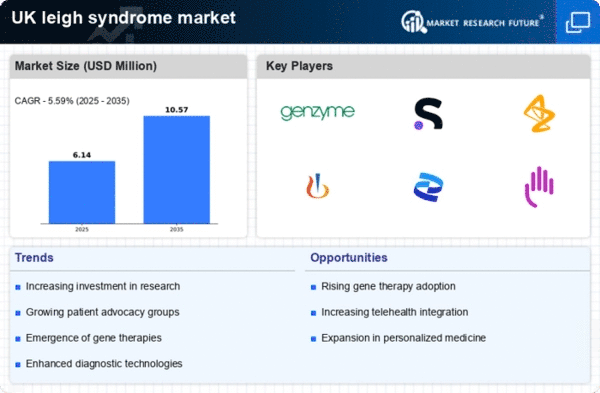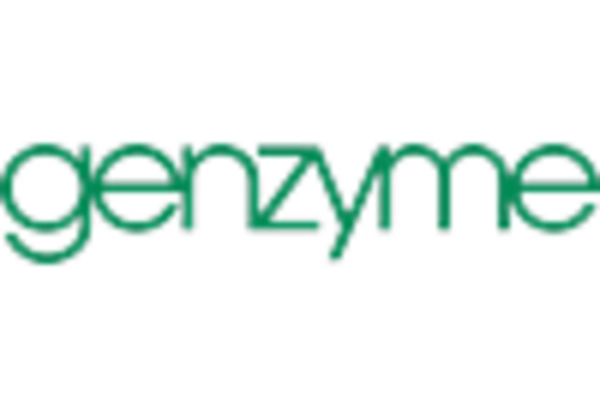Emerging Therapeutic Approaches
The exploration of novel therapeutic approaches is a key driver for the leigh syndrome-treatment market. Recent research has indicated potential benefits of various treatment modalities, including gene therapy and mitochondrial replacement therapy. These emerging therapies aim to address the underlying causes of Leigh syndrome, offering hope for improved patient outcomes. The UK is witnessing a surge in clinical trials focused on these innovative treatments, which may lead to breakthroughs in managing the condition. As these therapies progress through development and gain regulatory approval, they are likely to attract significant interest from healthcare providers and patients alike. Consequently, the leigh syndrome-treatment market stands to benefit from the introduction of these cutting-edge therapeutic options.
Government Initiatives and Funding
Government initiatives aimed at rare disease research are playing a pivotal role in shaping the leigh syndrome-treatment market. The UK government has been actively promoting research into rare diseases, including Leigh syndrome, through various funding programs and grants. This support is crucial for fostering innovation and encouraging pharmaceutical companies to invest in the development of new therapies. For instance, the UK Rare Diseases Strategy outlines a commitment to improving diagnosis and treatment options for rare conditions. Such initiatives not only enhance the visibility of Leigh syndrome but also create a conducive environment for collaboration between public and private sectors. Consequently, the leigh syndrome market is likely to benefit from increased investment and research activity, leading to the emergence of novel treatment options.
Rising Prevalence of Leigh Syndrome
The increasing incidence of Leigh syndrome in the UK is a critical driver for the leigh syndrome-treatment market. Recent estimates suggest that the prevalence of this rare mitochondrial disorder is approximately 1 in 40,000 live births. This rising prevalence necessitates the development of effective treatment options, thereby stimulating market growth. As awareness of Leigh syndrome expands among healthcare professionals and the public, the demand for specialized treatments is likely to increase. Furthermore, the growing number of diagnosed cases may lead to enhanced funding for research and development initiatives aimed at finding innovative therapies. Consequently, the leigh syndrome-treatment market is poised for expansion as healthcare systems adapt to meet the needs of affected individuals.
Growing Patient Advocacy and Awareness
The rise of patient advocacy groups in the UK is significantly influencing the leigh syndrome-treatment market. These organizations play a vital role in raising awareness about Leigh syndrome, educating the public, and advocating for better treatment options. Increased awareness can lead to more individuals seeking diagnosis and treatment, thereby expanding the patient population. Furthermore, advocacy groups often collaborate with researchers and healthcare providers to promote clinical trials and innovative therapies. This collaboration can accelerate the development of new treatments, as patient input is increasingly recognized as valuable in the research process. As a result, the leigh syndrome-treatment market may experience growth driven by heightened awareness and advocacy efforts.
Advancements in Diagnostic Technologies
Technological advancements in diagnostic tools are significantly impacting the leigh syndrome-treatment market. Enhanced genetic testing methods, such as next-generation sequencing, have improved the accuracy and speed of diagnosing Leigh syndrome. This has led to earlier detection and intervention, which is crucial for managing the condition effectively. The UK healthcare system is increasingly adopting these advanced diagnostic technologies, which may result in a higher number of patients being identified and treated. As a result, the demand for targeted therapies is expected to rise, further propelling the growth of the leigh syndrome-treatment market. The integration of these technologies into clinical practice could also facilitate better patient outcomes, thereby reinforcing the importance of timely diagnosis in the management of Leigh syndrome.
















